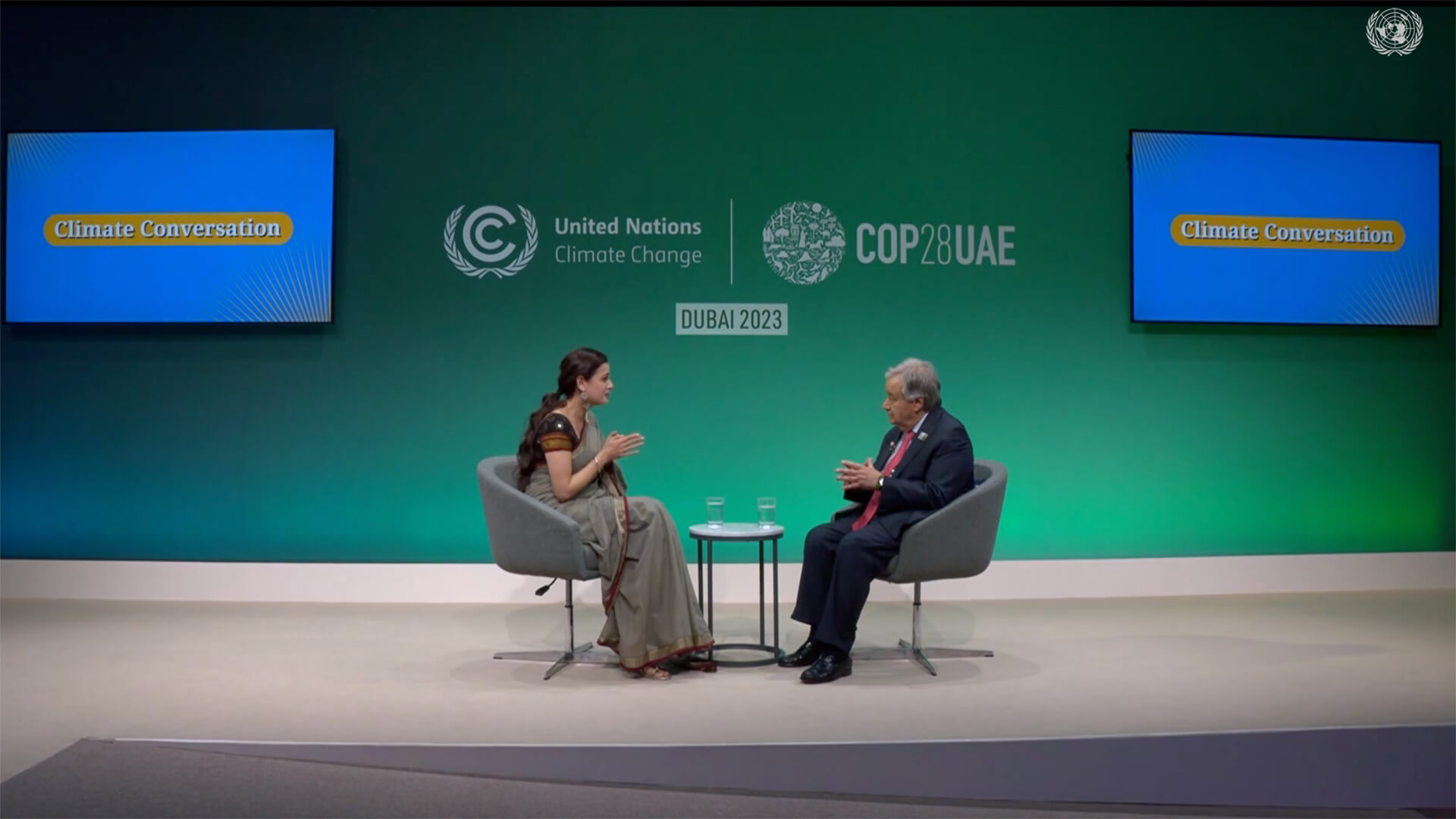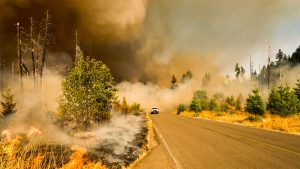COP28, the United Nations Climate Change Conference, is underway in Dubai. As with many of these foo-foo summits, I’m not expecting much to come out of it.
COP28 is a progress report on countries’ emission reduction commitments, equating to a parent-teacher conference where all countries get Ds or Fs on their report cards. The current focus of this year’s conference is adding protocols around methane.
Methane is the low-hanging fruit of climate-change talks, so it’s a no-brainer to add regulations surrounding it. However, China’s reluctance to abandon coal production (and, as a by-product, methane) underscores the difficulties in addressing emissions on a global scale.
Here at Zeihan On Geopolitics we select a single charity to sponsor. We have two criteria:
First, we look across the world and use our skill sets to identify where the needs are most acute. Second, we look for an institution with preexisting networks for both materials gathering and aid distribution. That way we know every cent of our donation is not simply going directly to where help is needed most, but our donations serve as a force multiplier for a system already in existence. Then we give what we can.
Today, our chosen charity is a group called Medshare, which provides emergency medical services to communities in need, with a very heavy emphasis on locations facing acute crises. Medshare operates right in the thick of it. Until future notice, every cent we earn from every book we sell in every format through every retailer is going to Medshare’s Ukraine fund.
And then there’s you.
Our newsletters and videologues are not only free, they will always be free. We also will never share your contact information with anyone. All we ask is that if you find one of our releases in any way useful, that you make a donation to Medshare. Over one third of Ukraine’s pre-war population has either been forced from their homes, kidnapped and shipped to Russia, or is trying to survive in occupied lands. This is our way to help who we can. Please, join us.
TranscripT
Hey everybody Peter Zeihan here. Coming to you from a snowy Colorado. Today, we’re going to talk about what’s going on in the Persian Gulf. There’s something called the COP 28 conference going on, which is the United Nations Global Climate Change Update conference. The acronym stands for Nothing, so don’t look for it. As a rule, I don’t comment on these things because any organization where Djibouti and Japan are both represented generally does nothing and there’s not a lot you should expect to come out of these talks at all.
It’s really just an update on where everyone is. Folks made commitments to reduce greenhouse gas emissions a few years ago. This is kind of progress report. And the bottom line is pretty much everybody gets a d/f. Not a lot has happened. Two things. Number one, the way these things are negotiated is you have political authorities and you have scientific authorities.
The political authorities are the ones who actually have to get stuff done. And the scientific authorities tend to be the ones who set the thresholds and the targets. And oftentimes the two of them don’t discuss things very often. And so the political statement and the scientific statements often have very little to do with one another. Nothing really different here this time around.
What is different this time around is they’re trying to add a completely new category to the greenhouse gas emissions protocols. So until now, it’s been focused mostly on carbon dioxide, which is by far the number one source of climate change. But this time, they’re trying to add methane. Now, methane, a.k.a. cow farts, a.k.a natural gas, is a much more potent greenhouse gas emission, but for a shorter period of time.
So CO2 lasts in the system for centuries with a moderate warming effect, whereas natural gas usually dissipates within about a decade but has a much stronger impact in that time. So if you’re looking for the low hanging fruit in climate talks, methane is where you want to go. And in cases of like the United States, most of our methane emissions are linked into oil and gas production in some way.
In a lot of oil production and shale fields, natural gas comes up as a byproduct. And so really, all you need to do is have better sealant on the pipelines and the production system. You would have a pretty outsized impact on methane emissions from a climate point of view. In addition, a lot of these things pay for themselves because natural gas is a product that can then be sold into the power system or the chemical system.
So the Biden administration is in the process of perfecting some regulations with the goal of reducing American methane emissions by about 80% over the course of the next decade, which I think is an actually fairly achievable goal that I don’t think the oil and gas industry is going to push back against too much because, again, it’s a product.
But that doesn’t mean it’s going to be involved in these cop talks at all because of the Chinese. Give you an idea of just how hypocritical some of these talks are and how little progress you should expect. The Chinese are against involving methane as an emission target because most of their methane is a byproduct of their coal production.
And if they’re going to continue to use coal for the vast majority of their power, then they’re going to kick out a lot of methane as a side effect. And unlike in the United States, where this is something that can be solved by sealing up pipes, all you have to do in China, if you want to not have the methane, is to shut down the coal, the coal mines.
So the Chinese are kind of dead set against this category in general anyway. We’ve seen this in environmental regulations before with the Chinese, where in a lot of the advanced countries, most notably the United States, it’s an issue of kind of cleaning up after yourself and a lot of it pays for itself. Something very similar happened back in the eighties, in the nineties with something called the Montreal Protocol, which is something that banned chlorofluorocarbons, which is something that used to be in freon and air conditioning systems.
We banned it because it was bad for the ozone layer, gave everybody sunburns and we replaced it with something called HFCS, which were an order of magnitude better. Now, the Chinese were the ones at the time were produce most of the world’s freon, and they didn’t think that the replacement technologies are something that they could master. So for technological sovereignty issues, they refused to go along with it until the rest of the planet had made the switch and then they finally joined on the tail end.
We’re probably going to see something like that with methane in the talks this week. Okay. That’s it. By.







